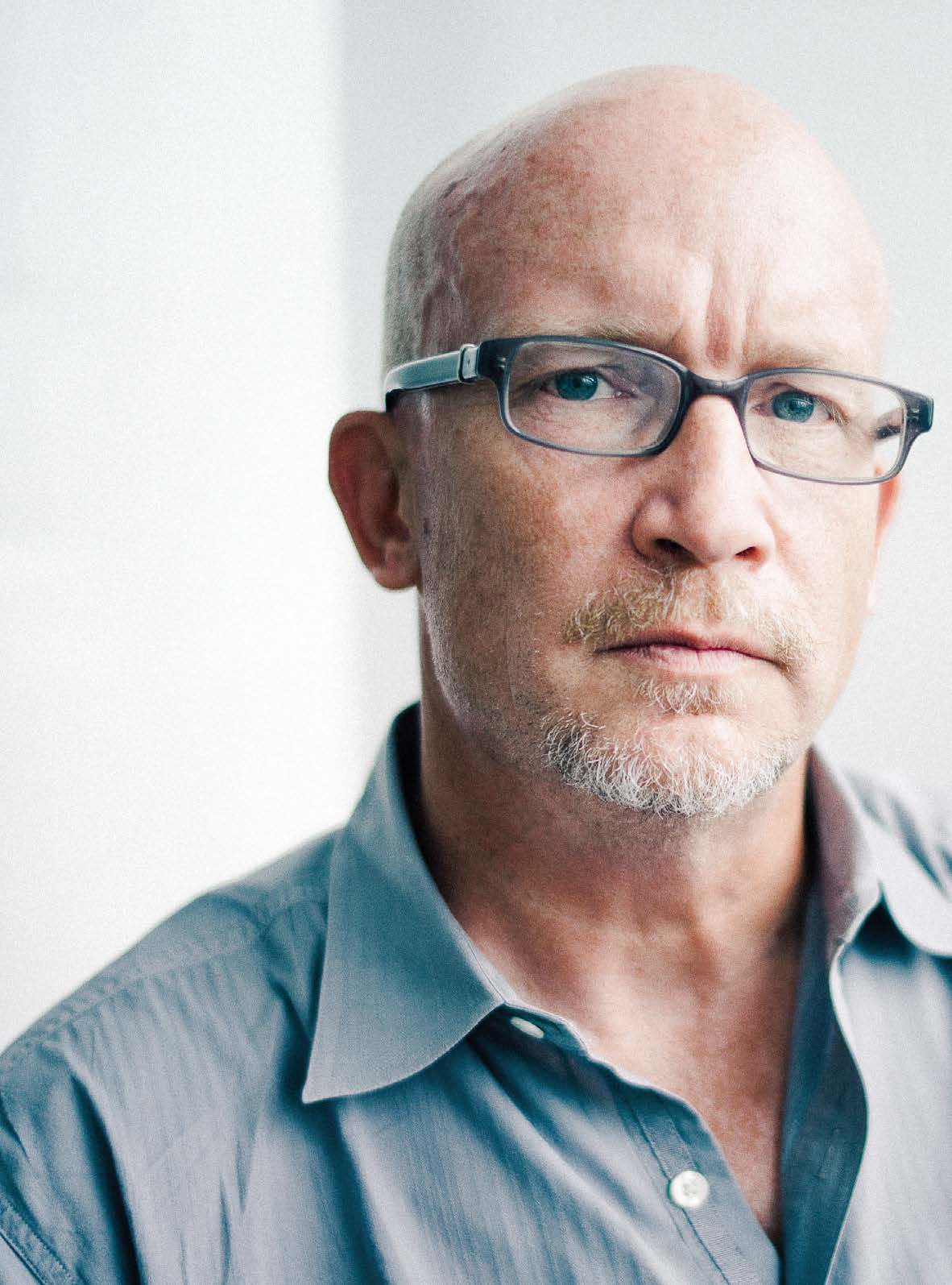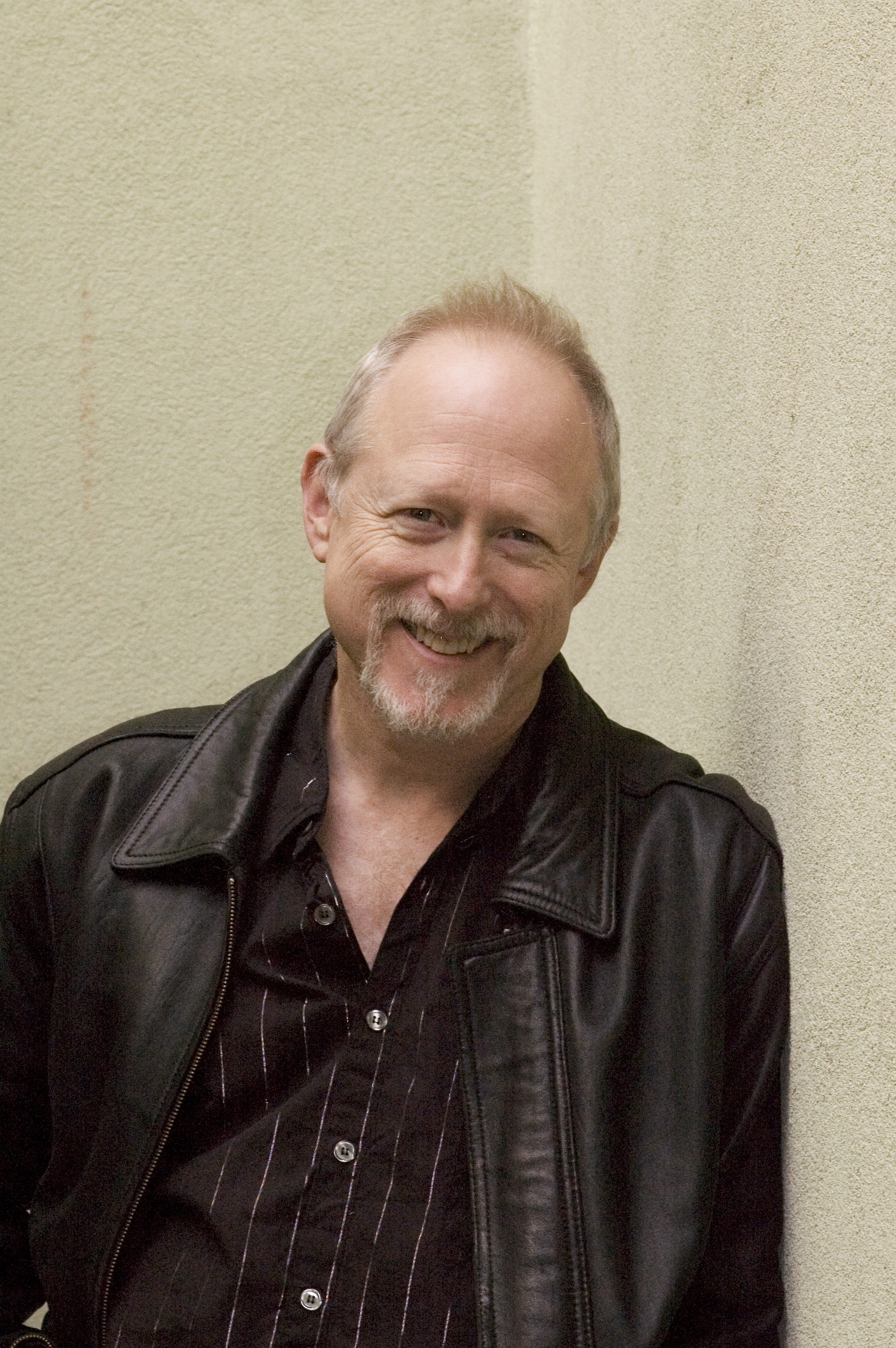Visiting town for SIFF last month to discuss his new documentary We Steal Secrets: The Story of WikiLeaks, director Alex Gibney knew that Julian Assange was still holed up in the Ecuadorian embassy in London, and he knew that Bradley Manning was awaiting military trial, but he could never have guessed how the NSA’s massive Prism surveillance program would be divulged by a bold new leaker named Edward Snowden. (Call him a traitor or hero as you prefer.) A lot has changed in the past few weeks, but Gibney’s doc seems even more timely—although, as our Robert Horton writes in his review, We Steal Secrets now seems badly in need of a postscript to address current developments. That will probably have to wait for the DVD.
Back in 2010, when WikiLeaks released prior footage of U.S. helicopters killing Iraqi “insurgents” (later revealed to be civilians and Western reporters), Gibney recalls, “I was looking at the material that was coming out [from WikiLeaks], and it was fantastic. That was my first way into [the documentary]. That this stuff can be posted on a website in this way is fantastic.”
Secrecy was one selling point—then there was sex. Having previously charted the prostitution scandal that ruined the political career of New York’s governor in Client 9: The Rise and Fall of Eliot Spitzer, Gibney became even more interested in Julian Assange. “The sex allegations coming out of Sweden, because of my experience on Client 9,” he explains, at first led him to think “this is some kind of conspiracy.” Like others, he wondered if the U.S. government wasn’t setting up Assange through proxies to get him arrested and extradited to America, where a trial would swiftly follow.
Gibney adds, “I also read with great admiration this article in The New Yorker by Raffi Khatchadourian. That made Julian a really intriguing character. I thought [the film] was going to be an Assange story, pure and simple.”
In making We Steal Secrets, however, Gibney found Assange to be an extremely elusive figure. Part of the film’s drama lies in his hunt for access (not unlike Michael Moore’s Roger & Me), as Gibney interviews people who’ve interviewed Assange—often using their old footage—while negotiating with Assange for an interview. (In the film, Gibney says Assange demanded $1 million for that privilege.)
Gibney tells me, “The trouble with Julian from the get-go is that he’s fond of embellishing or fictionalizing his story. You have to be careful in talking to Julian.” Quoting a source in the film, he says of Assange, “He was living intensely in his imagination.” This gives his quarry a certain James Bond complex: He wears bulletproof vests to press conferences, constantly swaps out the SIM cards on his cellphones, and yet also dresses carefully for the camera.
“He’s very, very, very image-conscious,” says Gibney of Assange. “And I think also in his transactions with people who want to interview him, me included, he sees himself as a kind of puppet-master who is pulling the strings of his own story . . . in order to be able to make it come out the way he wants.”
Though We Steal Secrets doesn’t delve too deeply into Assange’s youth in Australia, apart from an early hacking trial in the ’90s, there’s the suggestion of a lonely computer gamer, like a D&D enthusiast eager to try on new identities. Says Gibney, “He comes out of a world of myth. Frankly, that’s what interested me about the story in the beginning. When he faces prosecution with that group in Melbourne in the ’90s, [Assange] imagines himself as Solzhenitsyn. I’m sorry, but he’s not fucking Solzhenitsyn. He’s always had a vivid imagination.”
Today, WikiLeaks seems inseparable from the personality cult—if not paranoia—of its founder. Another big classified data dump may no longer be possible; or it’ll go to another outlet. Assange has become too famous for the public good, and Gibney bemoans the lost potential of WikiLeaks, which he admiringly shows in the film as the hackers reveal damning e-mails among Icelandic bankers before the global financial crisis of 2008. Five years later, says Gibney, “It is disturbing that more material didn’t come out of Wall Street, and it’s too bad. I put the Iceland thing in because it really is an example of how terrific and magnificent WikiLeaks can be. But when you look at the other big [leaks], they all come from one person.
“I started this film to be all about Julian Assange. Halfway through, maybe because Julian wouldn’t talk to me, we got much more interested in Manning. Bradley Manning had become this forgotten figure. We all talk about the WikiLeaks documents, but they’re the Manning documents. He’s so important. He’s the leaker.
“So it’s like Julian Assange was a guy who went fishing at the end of a dock with a shoelace and a safety pin, and he pulled up Moby-Dick. I’m not sure anything so big ever will ever come again.”
Again, Gibney and I had this conversation in mid-May, just as The Guardian first reported how the NSA was collecting reporters’ phone records. “The Obama administration is so aggressive about going after journalists,” he noted at the time. And now comes Edward Snowden, another big whistleblower whose story bypassed WikiLeaks and was first reported in The Guardian.
If there’s any reason to be optimistic about puncturing government secrecy, says Gibney, “It’s the paradigm of WikiLeaks that becomes more interesting.” He says The New York Times considered but rejected the idea of an anonymous electronic dropbox for sources, while The New Yorker and The Guardian have set up just that. Traditional media may have caught up to WikiLeaks already, while Assange is holed up in the Ecuadorian embassy—famous, but possibly useless.
“Celebrities keep rolling through,” snorts Gibney about Assange’s many high-profile visitors. “Oliver Stone just tweeted about how damaging my film might be. Even though neither he nor Julian has seen it.”
Assange will probably have to wait for the DVD for that.
One last thing, totally unrelated. (Or is it?) I ask about Gibney’s next project, The Road Back, in which Lance Armstrong will supposedly disclose far more than he did to Oprah about his doping and Tour de France wins. But wait a minute . . . Here’s another handsome, charismatic guy, born in humble circumstances, obsessed with success, highly controlling of his public image, with an eye for blondes. Armstrong and Assange have a lot in common: a rise-and-fall arc, a hubristic belief that they aren’t held to the same standards of truth. If Gibney wanted an alternate title for the project, due this fall, it could be We Steal Bike Races.
bmiller@seattleweekly.com
WE STEAL SECRETS: THE STORY OF WIKILEAKS Opens Fri., June 14 at SIFF Cinema Uptown. Rated R. 130 minutes.






